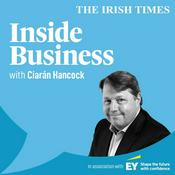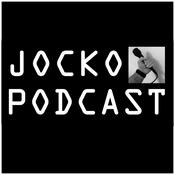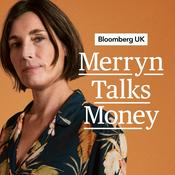144 episodes

143 | The Power of Connection in Modern Workplaces | Kevin Empey & Susie Leacy
13/11/2025 | 44 mins.
Summary In this episode of the Building Better Cultures podcast, Scott McInnes discusses the challenge of disconnection in the workplace with guests Susie Leacy and Kevin Empey. They explore the impact of remote work on employee connection, the role of leadership in fostering a cohesive culture, and the importance of intentional strategies to build relationships among employees. The conversation also touches on the multi-generational workforce and the need for organizations to adapt their communication and engagement strategies to meet diverse needs. Ultimately, the episode emphasizes that connection is a shared responsibility between leaders and employees, and that fostering a culture of connection is essential for organizational success. Takeaways Disconnection is a significant challenge in modern workplaces. Connection is essential for productivity and resilience. Leadership plays a crucial role in fostering connection. Organizations must adapt to maintain engagement in remote work settings. Intentional strategies are needed to create opportunities for connection. The multi-generational workforce presents unique challenges and opportunities. Onboarding processes should focus on building community and connection. Employees have a role in co-creating workplace culture. Flexibility in work arrangements comes with shared responsibility. Connection should be prioritized over merely addressing disconnection. Chapters 00:00 Introduction to Disconnection in the Workplace 04:47 Understanding the Challenge of Disconnection 09:01 The Importance of Connection in Modern Work 12:03 Bridging the Gap: Building Cohesion and Engagement 16:15 Navigating a Multi-Generational Workforce 21:55 Intergenerational Connections in Care Settings 24:35 Bridging Generational Gaps in the Workplace 29:42 Intentional Onboarding and Cultural Integration 33:06 Creating Community in a Hybrid Work Environment 39:13 Co-Creating Culture: The Role of Employees and Leaders

142 | Navigating Accountability for Values | Karen Jones & Karen Hackett
06/11/2025 | 45 mins.
Summary In this episode of the Building Better Cultures podcast, Scott McInnes discusses the challenge of accountability for values with guests Karen Jones and Karen Hackett. They explore the importance of articulating and embedding organizational values, the role of managers in fostering a culture of accountability, and the potential pitfalls of weaponizing values in the workplace. The conversation also touches on the significance of onboarding processes and the need for open communication and feedback within organizations. Takeaways Accountability for values is a significant challenge for many organizations. Values must be articulated and understood to be effectively lived. Creating a culture of feedback is essential for accountability. Managers play a pivotal role in releasing the energy of their teams. Onboarding processes should embed values from the start. Psychological safety is crucial for open conversations about values. Values can be weaponized, leading to defensiveness in feedback. Organizations need to be bold about their current culture and desired future state. Storytelling can help connect employees to organizational values. Time is a critical factor in enabling managers to engage with their teams. Chapters 00:00 Introduction to Accountability for Values 01:24 Understanding Organizational Culture 04:18 Insights from the Mind the Gap Report 06:19 Bringing Values to Life 11:03 Accountability in Practice 17:17 Weaponization of Values in the Workplace 22:16 Building a High-Performance Culture 24:53 The Role of Managers in Organizational Success 30:01 Empowering Middle Managers 37:22 The Importance of Storytelling in Leadership 37:49 Effective Onboarding Practices

141 | Mentoring, Peer Learning, and AI: The Future of Workplace Development | Barbara Carroll & Lisa Melody
30/10/2025 | 38 mins.
Summary In this episode of the Building Better Cultures podcast, Scott McInnes discusses the third challenge from the Mind the Gap research report, focusing on the importance of learning and development in organizations. Joined by guests Barbara Carroll and Lisa Melody, they explore the significance of multi-generational workforces, the effectiveness of peer learning, and the critical role of leadership in fostering a culture of continuous learning. The conversation emphasizes the need for organizations to adapt their training methods and embrace diverse learning opportunities to meet the evolving needs of their employees. In this conversation, Scott McInnes, Lisa Melody, and Barbara Carroll discuss the evolving landscape of learning and development, emphasizing the importance of practical experience, mentoring, and the integration of AI in shaping future skills. They explore how organizations can foster growth through stretch assignments and collaborative decision-making, while also addressing the challenges and opportunities presented by AI in streamlining learning processes. 📘 Download Mind the Gap Report: https://www.inspiringchange.ie/mindthegap Takeaways Organizations are grappling with similar challenges in learning and development. Learning should be a core value within organizations. Different learning methods can enhance employee development. Peer-based learning fosters collaboration and accountability. Mentoring, including reverse mentoring, is increasingly valuable. Leaders must model a commitment to their own learning. Creating space for learning is essential for employee development. Understanding the 'why' behind training increases motivation. Simple interventions can lead to significant improvements in learning. Embedding learning in organizational culture is crucial for success. Learning is about practical experience, not just courses. The 70-20-10 model emphasizes learning through daily activities. Stretch assignments can significantly enhance learning. Mentoring plays a crucial role in development. Engaging leaders fosters a collaborative culture. AI can help identify skills needed for future roles, streamline learning needs assessments and enable more efficient learning material creation. Reflection on learning is essential for growth. The future of learning will be more personalized through AI. Chapters 00:00 Introduction to Mind the Gap Research 03:53 The Importance of Learning in Organizations 09:48 Dynamic Training and Peer Learning 16:14 Multi-Generational Workforces and Mentoring 20:04 Leadership's Role in Cultivating Learning Cultures 28:05 Redefining Learning and Development 33:10 The Role of AI in Future Skills 43:43 Embracing Change in Learning Environments

140 | Equipping Managers for the Future: Tools for Culture and Connection | Katy Lumsden & Neil O'Brien
23/10/2025 | 50 mins.
Summary In this episode of the Building Better Cultures podcast, Scott McInnes discusses the challenges faced by mid-management in organizations, drawing insights from the Mind the Gap research report. Guests Katy Lumsden and Neil O'Brien share their experiences and perspectives on the evolving roles of managers and leaders, the importance of culture, and the need for effective communication and training. The conversation highlights the significance of psychological safety, resilience, and the necessity for managers to engage in tough conversations while fostering a supportive environment. Takeaways The mid-management layer faces unique challenges from both above and below. Commonalities in organizational challenges can provide reassurance and strength. Leadership and management roles are increasingly blurred in modern organizations. Managers need to be equipped with tools to foster culture and engagement. The say-do gap highlights discrepancies between senior leadership intentions and managerial actions. Tough conversations are essential for growth but often avoided due to fear. Psychological safety is misunderstood and misapplied in many organizations. Resilience in younger generations may differ from previous cohorts. Effective management requires understanding individual team members deeply. Training for managers should focus on practical skills for modern challenges. Chapters 00:00 Introduction to Mind the Gap Research 05:04 The Role of Mid-Management 08:39 Leadership vs. Management 16:18 Culture Multipliers vs. Bottlenecks 21:58 Shifting Mindsets in Management 23:37 Navigating the Transition from Peer to Manager 29:42 The Importance of Role Modelling in Leadership 31:51 Addressing Difficult Conversations 38:47 Resilience in Leadership and Generational Differences 44:37 Skills for Modern Leadership in a Hybrid World Mind the Gap Research: https://bit.ly/3WMlS4C What People Get Wrong About Psychological Safety: https://hbr.org/2025/05/what-people-get-wrong-about-psychological-safety

139 | The Critical Role Leadership Plays in Shaping Organisational Culture | Denise Black and Denis Doolan
16/10/2025 | 43 mins.
Episode Summary In this episode of Building Better Cultures, Scott McInnes sits down with Denise Black and Denis Doolan to explore the critical role of leadership in shaping organisational culture. Together, they unpack insights from the Mind the Gap report — highlighting the importance of intentionality, inclusivity, and the need for leaders to embody the culture they wish to create. The conversation delves into the consequences of neglecting culture, the essential capabilities leaders must develop, and the collaborative process of defining a target culture that aligns with organisational strategy. The episode wraps up with reflections on how leadership drives cultural change and performance across teams. Key Takeaways Leaders have a disproportionate impact on organisational culture. Inclusivity is essential for effective culture creation. Culture should be woven into the strategic DNA of the organisation. Empathy and active listening are critical leadership skills. Culture is not a standalone initiative — it enables all initiatives. Intentionality in leadership is crucial for cultural success. Feedback from employees is vital in shaping target culture. Communication reinforces culture and values. Leaders must model the behaviours they wish to see. A strong culture leads to better organisational performance. Chapters 00:00 — Introduction to Leadership and Culture 04:28 — Insights from the Mind the Gap Report 09:24 — The Role of Leaders in Shaping Culture 15:12 — Consequences of Abdicating Culture to HR 19:19 — Essential Capabilities for Senior Leaders 30:39 — Defining Target Culture 37:23 — Impact of Leadership on Cultural Change Resources 📘 Download the Mind the Gap report → bit.ly/4nT9jAo
More Business podcasts
Trending Business podcasts
About Building Better Cultures
Listen to Building Better Cultures, Money Talks and many other podcasts from around the world with the radio.net app

Get the free radio.net app
- Stations and podcasts to bookmark
- Stream via Wi-Fi or Bluetooth
- Supports Carplay & Android Auto
- Many other app features
Get the free radio.net app
- Stations and podcasts to bookmark
- Stream via Wi-Fi or Bluetooth
- Supports Carplay & Android Auto
- Many other app features


Building Better Cultures
download the app,
start listening.





































